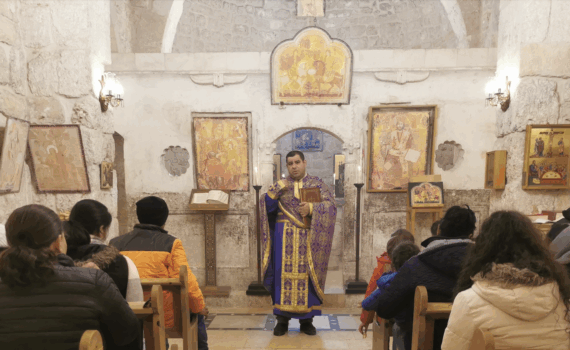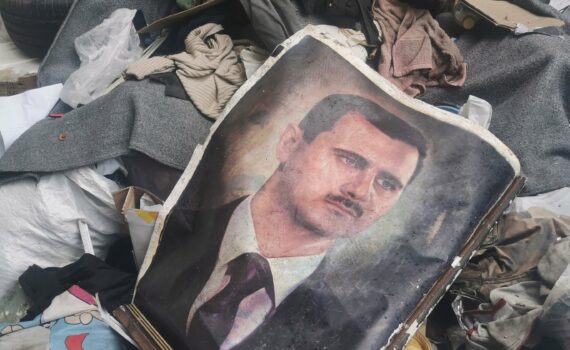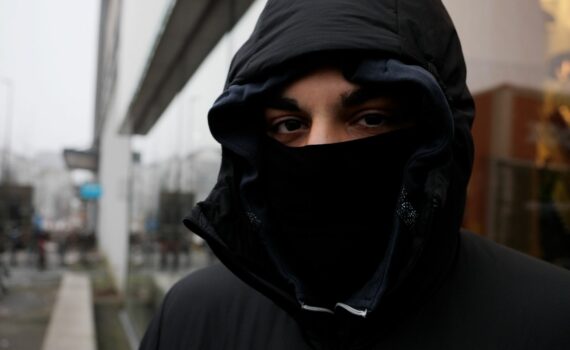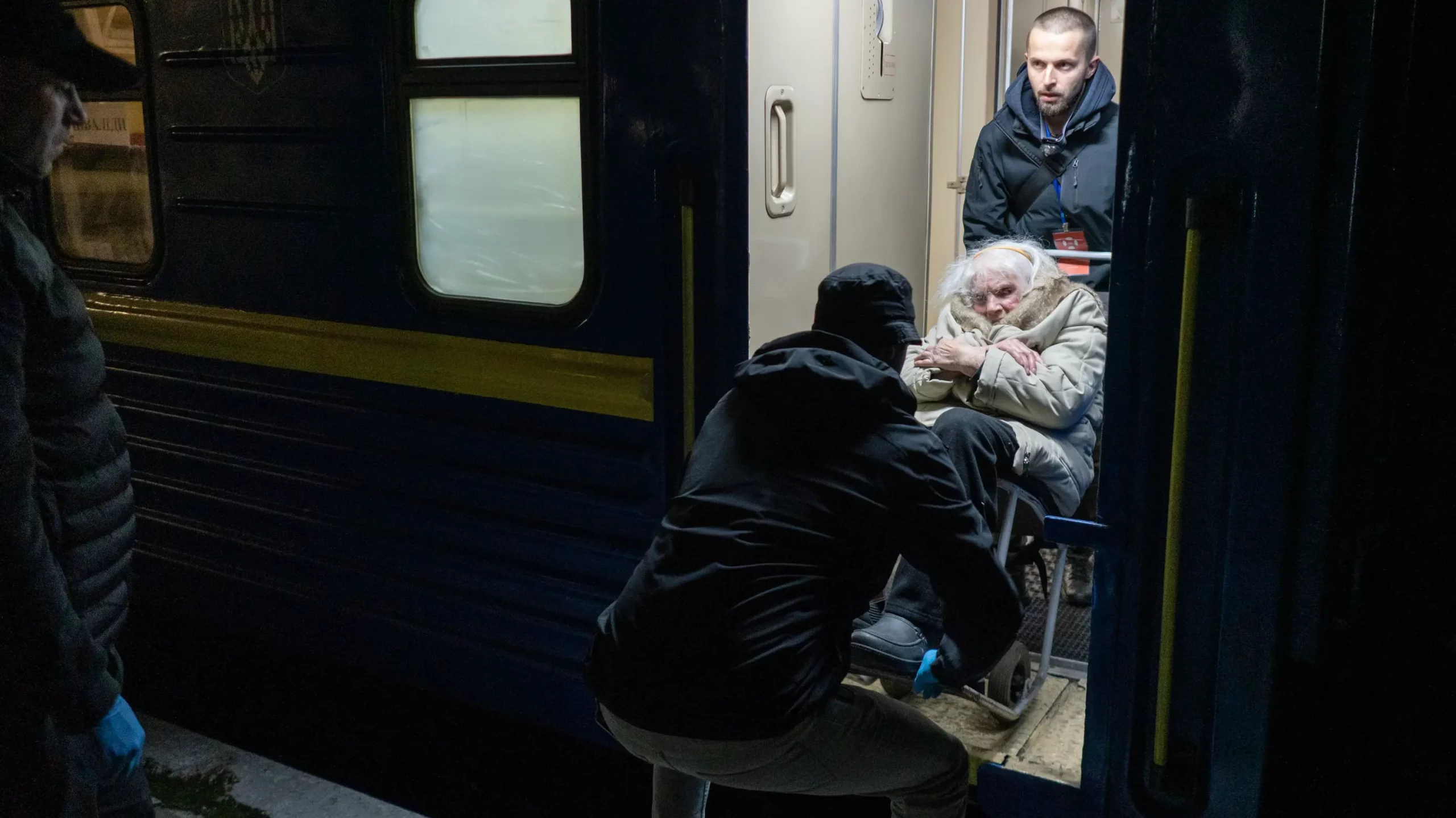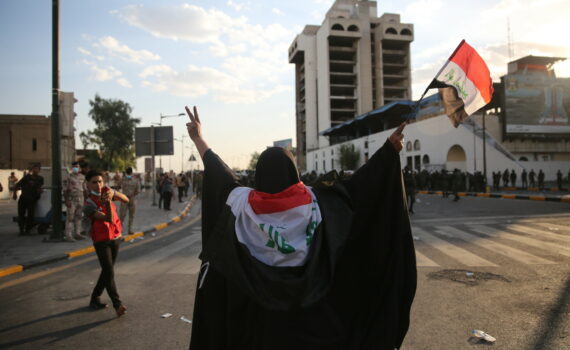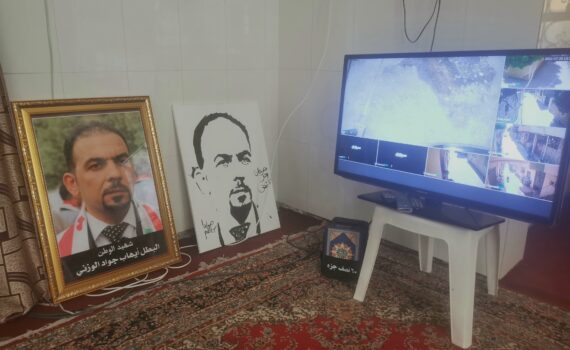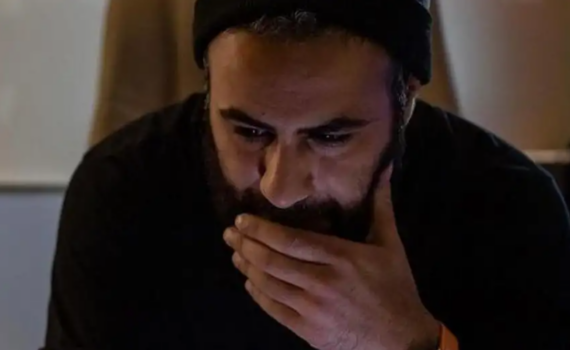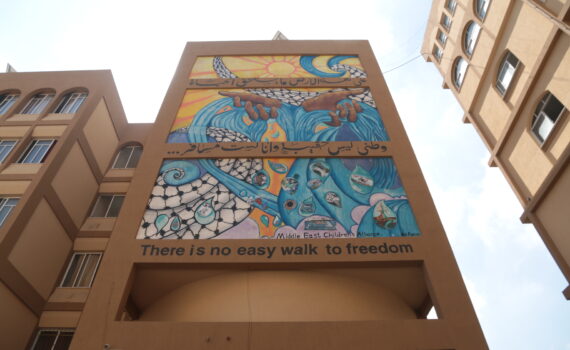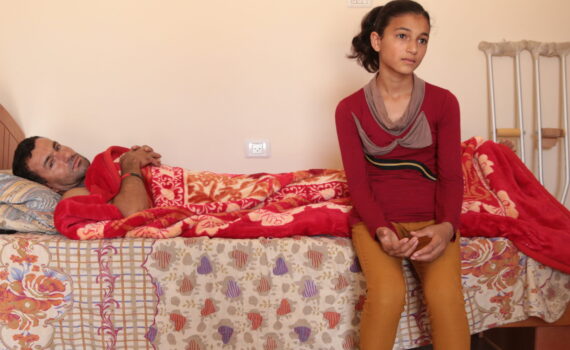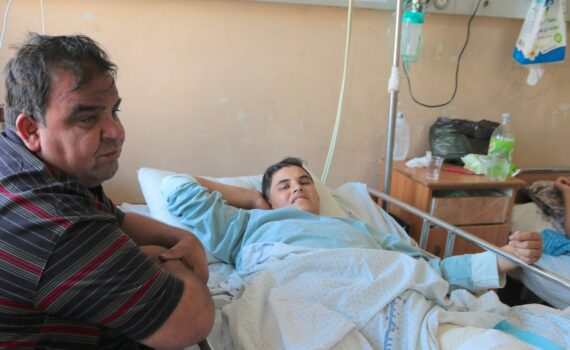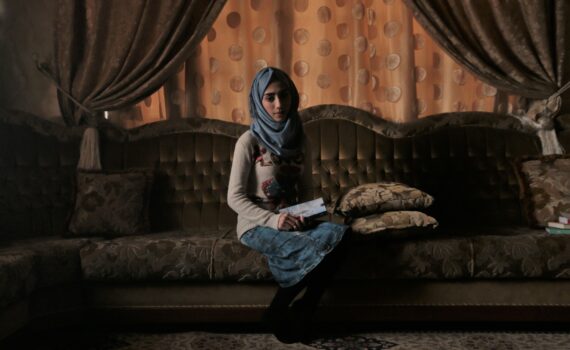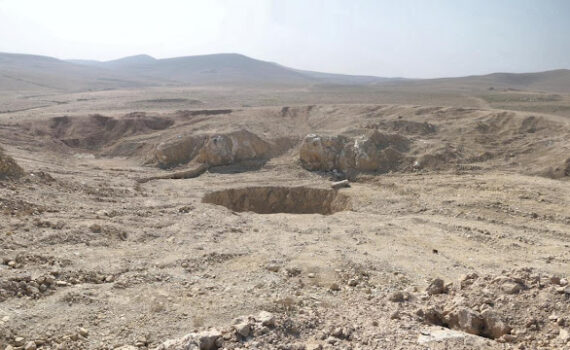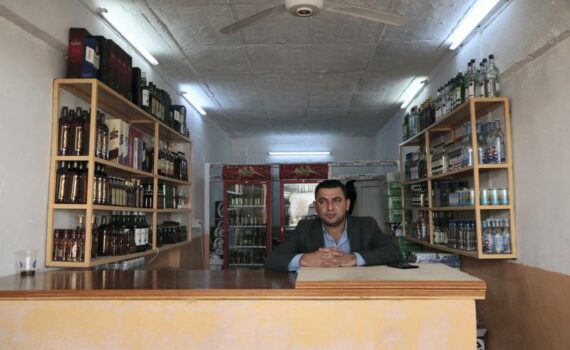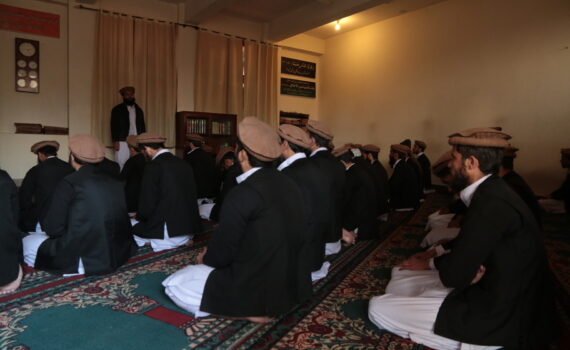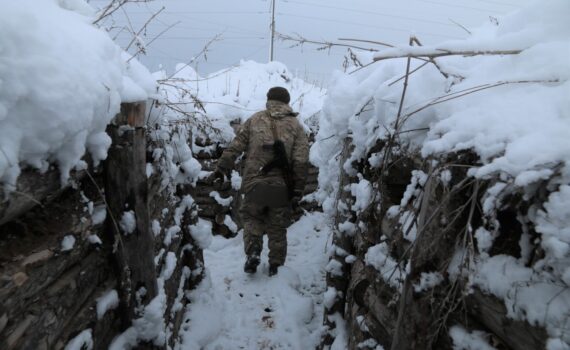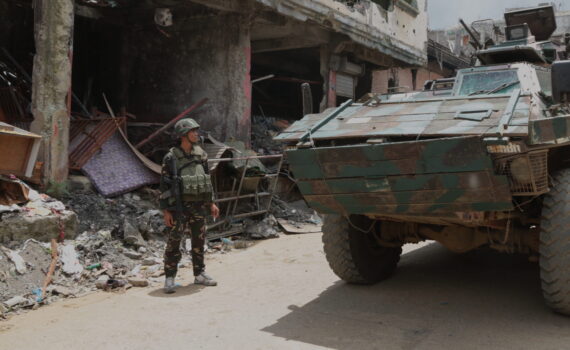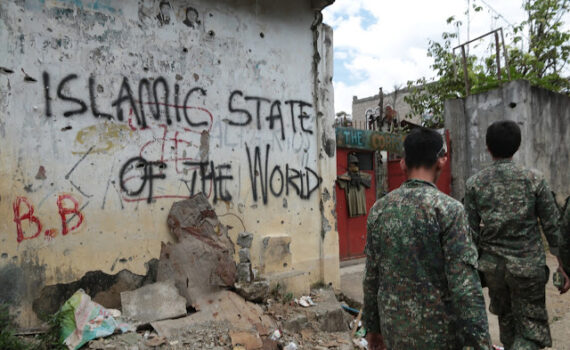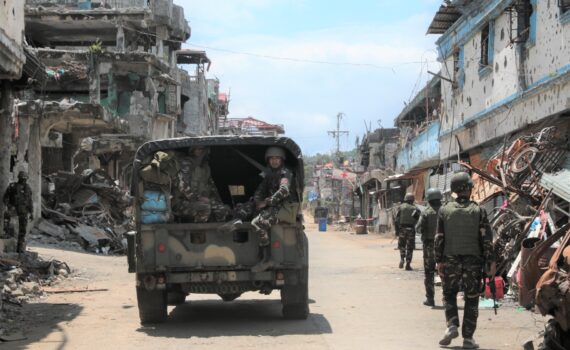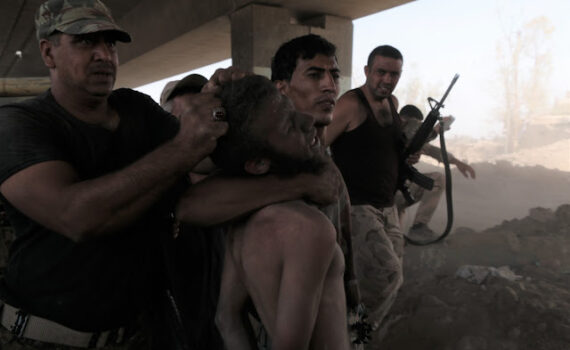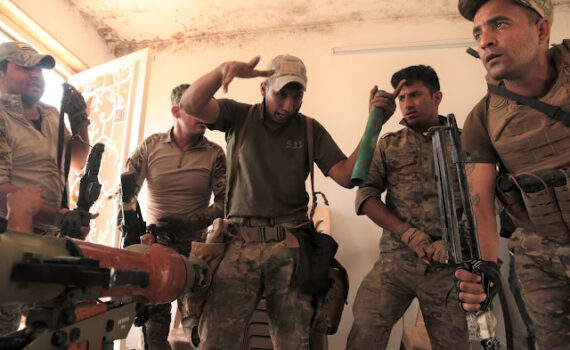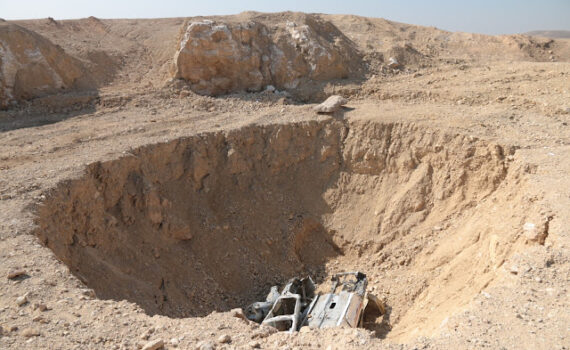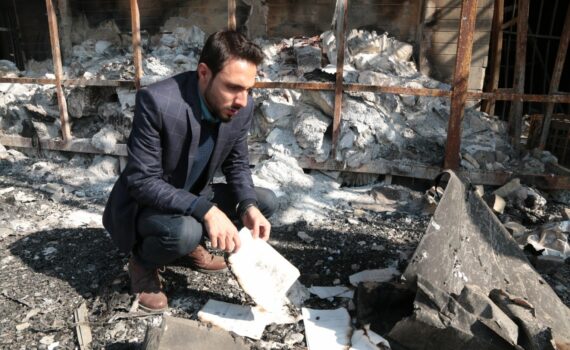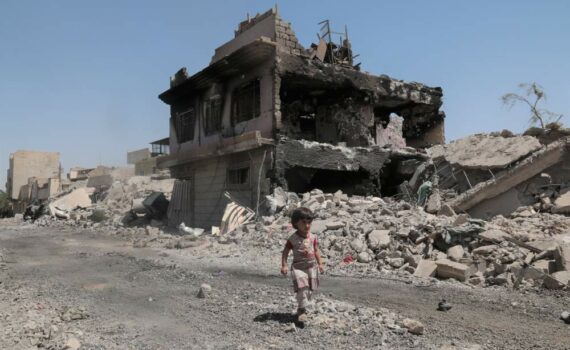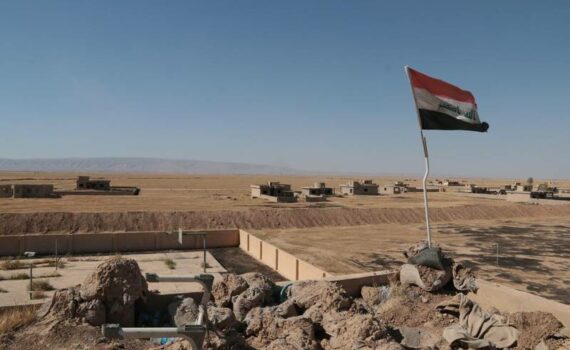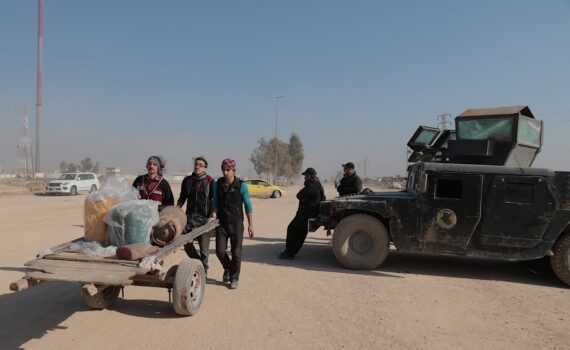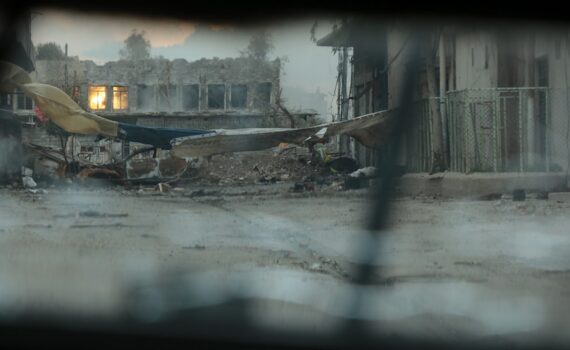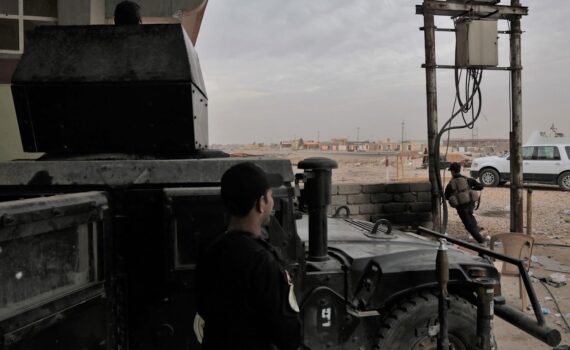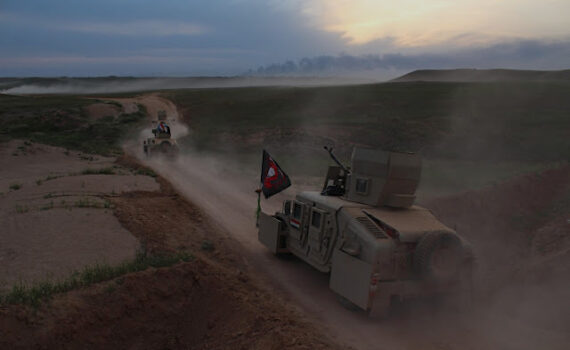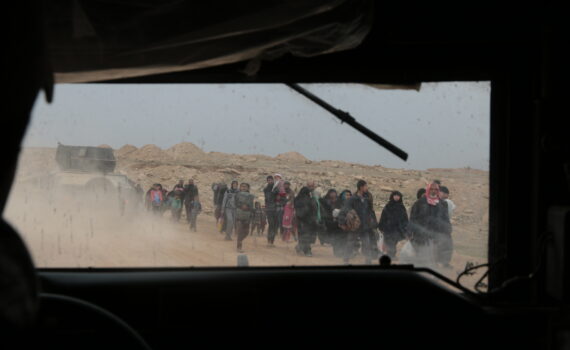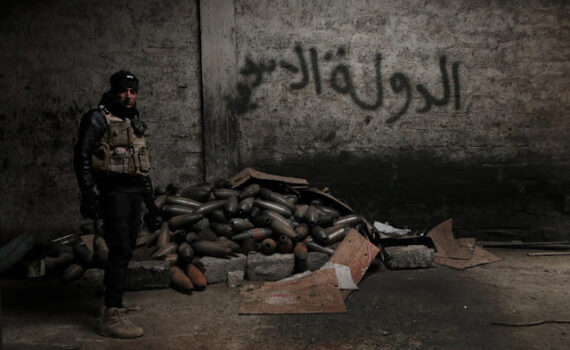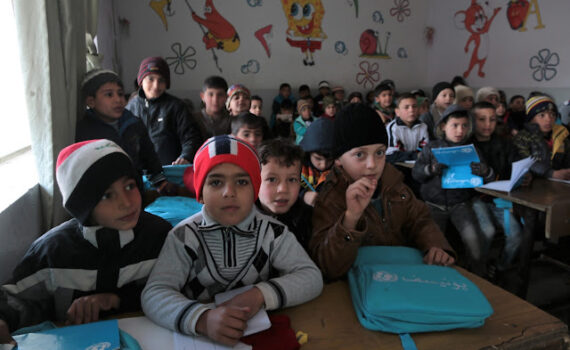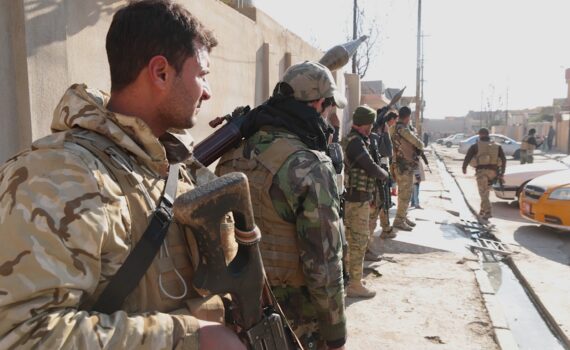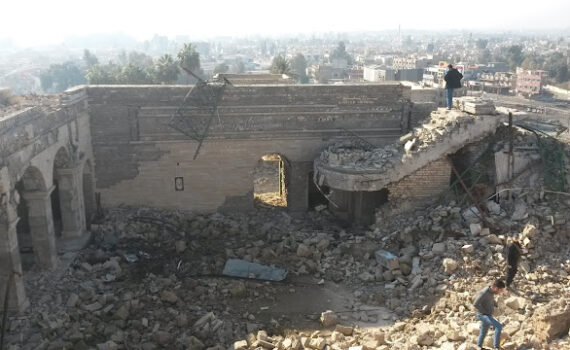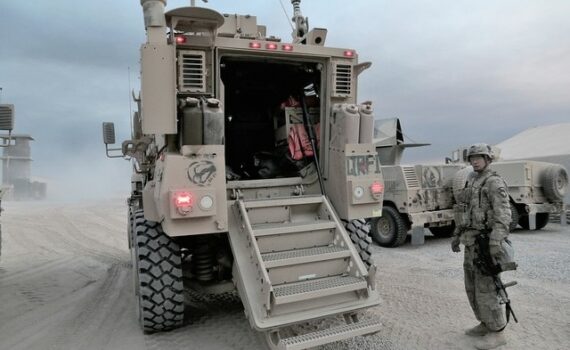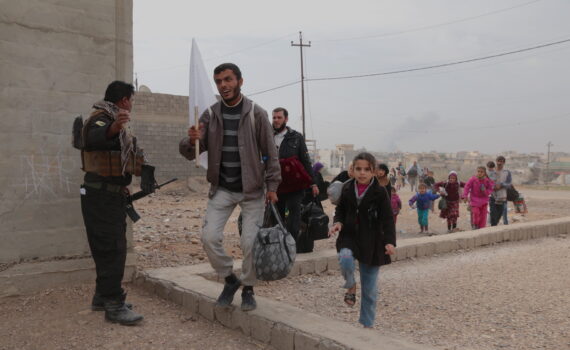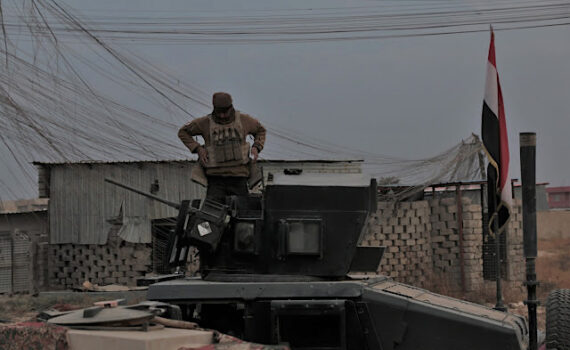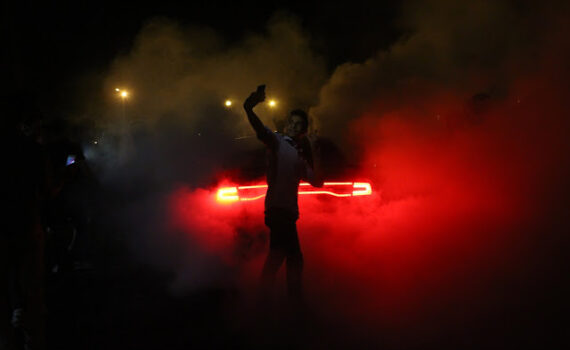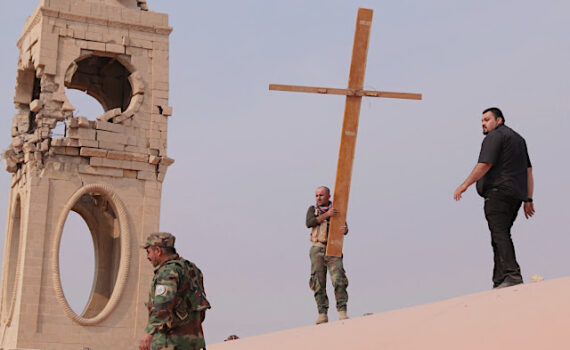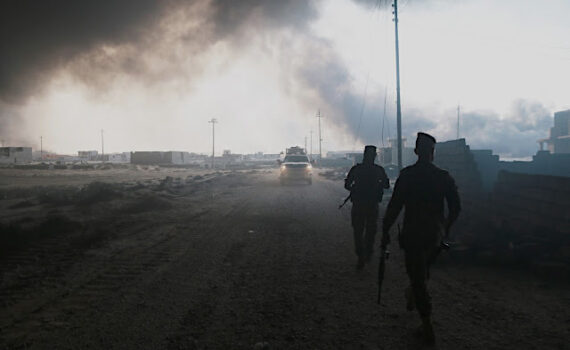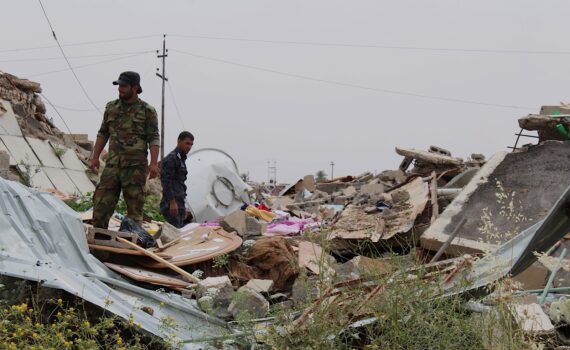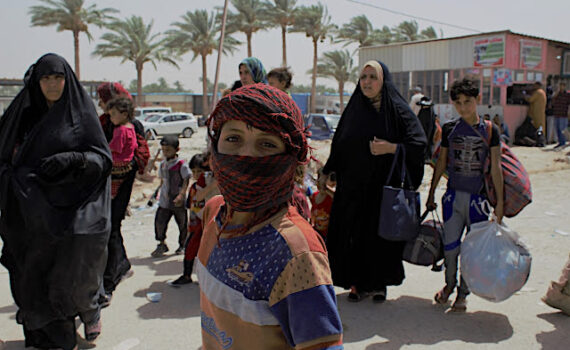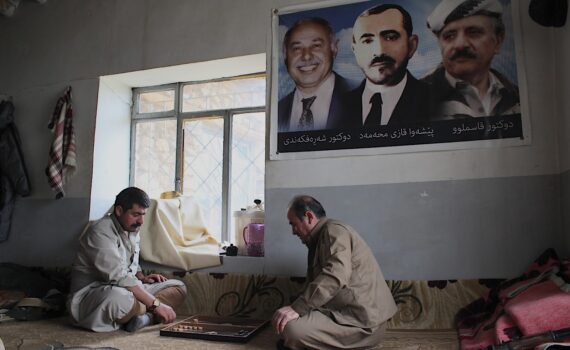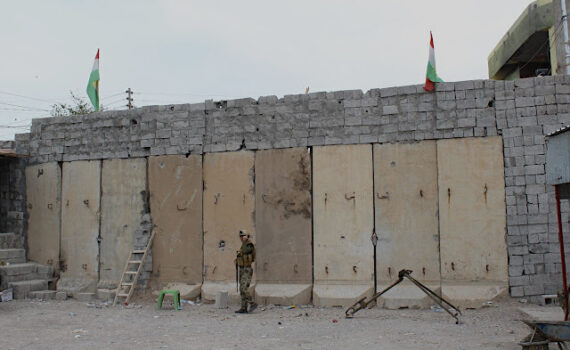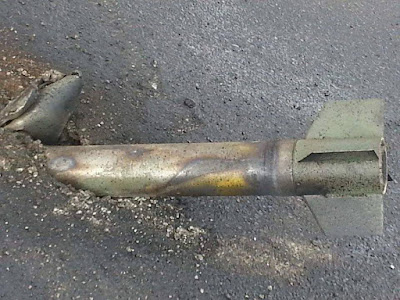In der hauptsächlich von Christ:innen bewohnten Stadt Maalula scheiden sich die Geister: Sind sie im Syrien unter al-Scharaa sicher? 2013 überfielen Kämpfer der Nusra-Front die Stadt, das Misstrauen sitzt tief.
Text
Tausende Syrer verschwanden in der Zeit der Assad-Diktatur. In den Folterkellern und verwüsteten Büros des alten Regimes suchen Freiwillige nach Beweisen für den Massenmord am eigenen Volk.
With gang violence spiraling out of control, police speak of “low intensity warfare”on the streets of Sweden.
Freiwillige retten ältere Menschen, die noch im Kriegsgebiet ausharren, aus deren frostigen Häusern.
For two years, Iraq’s mass protest movement has been plagued by unsolved murders. As October’s election nears, they are making common cause with those who previously opposed them.
Ehab was killed in his car. Abbas was shot on his way to a funeral. Zahra faces constant death threats. In Iraq, young activists are getting hunted down, one by one.
Though the battle to remove Trump from office is over, the war on truth is still being waged on other fronts, with Germany the hub of QAnon fantasists outside the Anglosphere.
The kidnapping of a successful Iraqi party organizer suggests the government is powerless against militias.
Der Gazastreifen gleicht einem Freiluftgefängnis: Die Bewohner können das Gebiet nur schwer verlassen, von außen darf kaum jemand hinein. Studierende lernen unter extremen Bedingungen – und träumen von der Freiheit.
Vor der Haustür wütete der “Islamische Staat”. Drinnen schrieb die Zahnmedizinstudentin Hadeel einen verbotenen Roman.
Eventually the stench of death was too much even for ISIS. They covered it, mined it. The Iraqi government won’t touch it. The families of the disappeared have no place to turn.
The terror group has lost its land, but not its ability to wage a war of terror and intimidation, and the Iraqi government’s corruption is helping it recruit.
But army’s efforts to reform ex-Taliban fighters will likely not be enough to eliminate extremist threat.
Bitter cold, few comforts, civilians that give their position away and no end in sight for the Ukrainian soldiers pitched against separatists backed by Russia.
In der philippinischen Stadt Marawi kämpft die Armee gegen islamistische Rebellen. Auf dem angrenzenden Campus geht der Uni-Betrieb weiter – an den Lärm der Flugzeuge und Bomben haben sich die Studenten gewöhnt.
The crackdown on drugs is a hallmark of President Rodrigo Duterte’s administration. But as the death tolls mounts, many Filipinos are speaking out – including the Catholic Church, one of the country’s most powerful institutions.
An ISIS offshoot spreads terror in the Philippines by taking over the city of Marawi on the island of Mindanao in 2017. As the military tries to retake the city, a deadly siege ensues.
As the Iraqi military slowly pushes into the heart of Mosul, suspected ISIS fighters are summarily executed.
With their backs to the wall, ISIS fighters in the city of Mosul are using poison gas to try and hold off Iraqi forces.
ISIS used a sinkhole outside Mosul to dispose of its victims, a place already used by Saddam Hussein to make people disappear.
After the terror of ISIS, returning home is still a distant prospect for thousands of Yazidis. Now they have become pawns as Baghdad and Erbil bicker over their homeland of Sinjar.
Der “Islamische Staat” zerstörte die Universität von Mossul, die zweitgrößte des Irak. Dozenten und Studenten machten trotzdem weiter – im Exil. Jetzt wollen sie zurückkehren.
Iraqi prime minister Haider Al Abadi declared the city of Mosul liberated in July 2017. But that diesn’t mean life has returned to normal for its residents — or for the men who fought to reclaim it from ISIL.
Yazidis join Shiite militias as they flush out ISIL militants from the village of Kocho in southern Sinjar.
In the ruins of the Old City, residents who escape increasingly desperate militants are then faced with Iraqi troops suspicious of suicide bombers.
The plight of the Yazidis brought the United States back into the Iraq War when Obama moved to save them on Mount Sinjar. But three years on, they’ve got little hope of going home.
The battle to retake Mosul from the so-called Islamic State is far from over. But the liberated zones feel very liberated indeed.
And estimated 400,000 civilians remained in the ancient city centre as Iraqi forces closed in on ISIS in Mosul. Human shields in the hands of a brutal terror group.
As the elite Iraqi forces drive into the ISIS-controlled metropolis, making headlines, their flanks are increasingly exposed.
Iraqi troops make heavy weather of retaking villages en route to first major objective of the campaign to liberate Mosul from ISIS.
As Iraqi forces push into ISIS-held Mosul, desperate civilians are on the run from snipers, booby traps and suicide bombers.
As the ‘final offensive’ to retake the western half of the city begins, the underground networks of ISIS continue to attack in the ‘liberated’ eastern half.
With fighting still ongoing on the other side of the river, some semblance of normality is slowly returning to eastern Mosul.
The battle with ISIL for the university had been a harsh lesson for Iraqi troops and although it was won, the war in nearby neighbourhoods continued.
When an elderly man bursts into tears after realising that ISIL’s reign of terror has come to an end in his neighbourhood, one soldier walks up to embrace him, while another offers him a cigarette.
The mosque contained what Muslims and Christians believe was the tomb of Jonah. It also held a shrine said to have contained a tooth from the whale that, according to Islamic, Christian and Jewish scripture, carried Jonah inside it for three days.
As Iraqi forces in Mosul engage in some of the fiercest fighting yet against ISIL, Florian Neuhof takes a look at life inside the Qayyarah Air Field West – a key launching pad as anti-ISIL coalition forces seek to flush the extremists out of their last Iraqi stronghold.
In fight for Iraq’s second city, Iraqi elite forces admit to struggling with IS’s endless supply of mechanised suicide bombers.
Families in liberated parts of Mosul are still exposed to the dangers of war, but fear their suffering will be even worse in the displacement camps which are already beyond capacity.
The site of the ancient city of Nimrud was destroyed and plundered by ISIS, just one of the region’s archeological treasures to fall victim to the terror group.
Once mistrusted, Iraq’s Special Operations Forces have become viewed as heroes for their success in defeating ISIL. Time spent with the Golden Division as they battle to liberate Mosul in their toughest fight yet.
As Baghdad is rocked by deadly explosions and political chaos, “drifting” is an increasingly popular way for young men in the Iraqi capital to let off steam.
ISIS forced the Christians of the Nineveh plain around Mosul to flee. Now they are returning, but in the key town of Qaraqosh, the fighting rages on.
In Qayyarah, a town on the Tigris crucial to the recapture of Mosul, residents celebrate being freed from ISIL but now suffer the health effects from the extremist’s scorched earth policy.
In Bashir, a Shiite Turkmen town recently liberated from the “Islamic State,” tensions that could lead to a new conflict in Iraq are palpable.
The Yazidis have been able to return to their most holy place, but US jets hover overhead and IS militants lurk around the corner.
As ISIL steps up attacks on Shiite areas, capital’s residents put blame on Iraqi politicians seeking to cling to power.
While Iraqi forces fight to dislodge ISIS from the city of Fallujah, displaced civilians languish in desert camps under the searing desert sun.
Gangs of destitute Iraqis pick through dump outside Erbil as the city, once a beacon of prosperity, struggles with economic and refugee crises.
In the bloody battle for Fallujah, ISIS is expelled from the city, the first major reversal for the terror group in Iraq.
With thousands of displaced families in Fallujah escaping the horrors of ISIL, the Kurdish town of Shaqlawa has seen its population swell – yet still welcomes the Sunni Arabs afraid of sectarian hatred in Iraq’s south.
While neighbouring Kurds make headlines, tensions simmer quietly in Iran as an exiled Kurdish group seeks to capitalise on growing discontent.
Many spent thousands of dollars on the perilous journey to Europe only to find themselves on a flight back to Iraq a few months later, their dreams of a better life away from war and upheaval shattered by the realities of the refugee crisis.
While both Iraq’s Kurdish fighters and Shiite militias played a key role in blunting and then reversing ISIL’s surge in Iraq, relations have been shaky from the outset.
Attacks on Sinjar highlight dangers posed by group’s homemade gas-filled weapons with Kurdish fighters ill-equipped to protect themselves.
